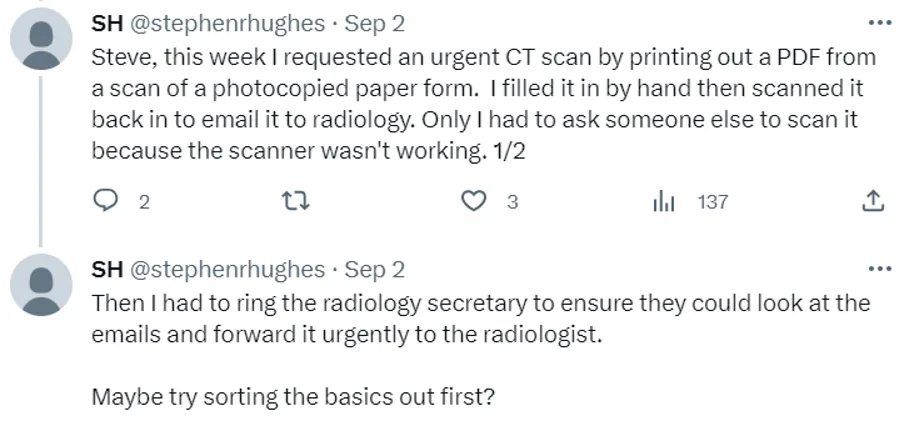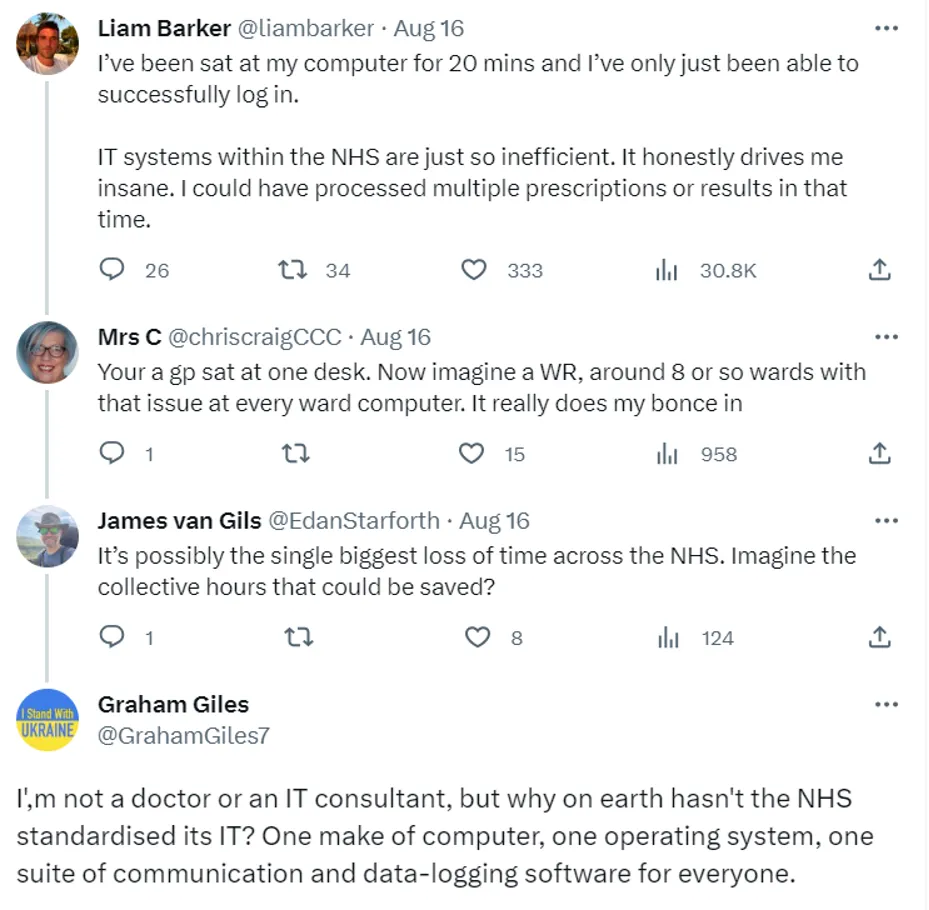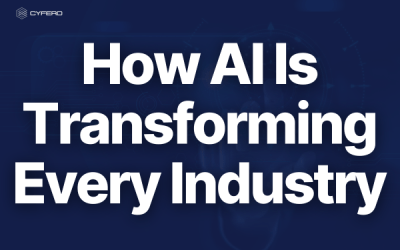From Prescriptions to Penguins: Unlocking the Potential of AI in Healthcare
In the ever-evolving landscape of healthcare, the NHS has ventured into the realm of artificial intelligence (AI) with the aspiration of enhancing healthcare services across the UK. This journey is marked by a history of technological innovations that have promised transformative change. However, the success of AI initiatives within the NHS hinges on the commitment to delivering tangible change and offering solutions that genuinely enhance patient care, streamline workflows, and improve healthcare outcomes.

The challenge of implementing advanced technologies, like AI, strategically within the NHS is formidable but essential. However, the focus must extend beyond AI alone, encompassing the broader landscape of digital transformation. Staff have voiced their concerns about the system’s foundational issues — these are the fundamental challenges that demand immediate attention. Rather than rushing into advanced technologies, a more measured approach is required. We must first address these foundational concerns to create a stable platform; one that can effectively house AI and other technological innovations. Hospital staff then must be guided through a carefully designed digital transformation journey, equipping them with the requisite skills and understanding to maximize the potential of AI. This approach is in stark contrast to previous instances where healthcare professionals were overwhelmed by the abrupt introduction of new technologies.
How can the NHS effectively leverage AI when there are fundamental issues within its infrastructure? Outdated and sluggish computer systems, coupled with a shortage of computers for staff, are persistent problems that must be addressed. Yet, these issues are just part of the problem. Data silos, fragmented systems, and cross-platform patient data access complicate matters further. Prioritizing interoperability and seamless integration is key. Clinicians shouldn’t have to navigate disconnected systems for critical patient data. This inefficiency hampers timely care. The solution lies in dismantling data silos and promoting data integration in healthcare transformation. This streamlines operations, improves patient care, and fosters an efficient, data-driven healthcare ecosystem.

Crucially, the success of AI implementation hinges on the active engagement of healthcare staff in the decision-making process. Front-line healthcare professionals are the backbone of patient care, and their insights are invaluable. While healthcare professionals recognize the potential of AI, it’s important to note that AI alone is ineffective unless properly developed and deployed to enhance their work. Therefore, involving them in the planning and execution of AI initiatives as domain experts is essential to ensure that these technologies are designed and implemented in a manner that aligns with their needs and maximizes their potential benefits. This approach fosters a sense of ownership and commitment to these changes among healthcare providers.
Rather than chasing after flashy but unsustainable tech advances that offer minimal real value in healthcare settings, the NHS should focus on solutions that genuinely enhance patient care, streamline workflows, reduce administrative burdens, and improve outcomes. The true potential of AI in healthcare lies not in innovation for its own sake, but in its ability to deliver practical and meaningful improvements.

Cyferd emerges as a potent digital transformation platform capable of addressing some of the NHS’s most pressing challenges:
Breaking Down Data Silos: The NHS’s complexity leads to data silos where information isn’t easily shared between different segments. Cyferd offers a solution by creating a unified data layer accessible to all users, effectively breaking down these barriers to efficient data sharing.
Improving Efficiency: The NHS, being large and bureaucratic, often grapples with inefficiency. Cyferd steps in by automating tasks like scheduling appointments and managing records, thus optimizing operations.
Enhancing Patient Experience: The NHS is committed to delivering a positive patient experience, even in high-pressure situations. Cyferd contributes to this goal by simplifying patient access to information and services and personalizing their healthcare journey.
Implementing these changes, Cyferd delivers a variety of advantages to both hospital personnel and healthcare systems. To begin, it bolsters efficiency by automating labour-intensive tasks, enabling staff to dedicate more of their time and effort to delivering targeted patient care. Additionally, through its enhancements to interdepartmental and inter-organizational communication within the NHS, Cyferd fosters improved decision-making, ultimately resulting in enhanced patient care. Furthermore, it streamlines patients’ access to vital information and services, thereby contributing to an overall more positive patient experience.
In conclusion, the NHS stands at a critical juncture where the integration of artificial intelligence holds great promise. Cyferd emerges as a powerful digital transformation platform capable of assisting the NHS in improving efficiency, communication, and the patient experience, offering practical solutions to some of the most significant challenges facing the NHS today. By adhering to the principles of promising tangible change, a structured digital transformation journey, and addressing basic infrastructure needs, the NHS can harness the true potential of AI to revolutionize healthcare for patients and healthcare professionals alike.
From SageX3 Limits to Full Flexibility: Harvest Pet Products
Seamless Salesforce Integration with Cyferd
How to Fix a Fragmented Tech Stack and Cut Costs
How AI Is Transforming Every Industry in 2025
How to Build AI-Powered Apps That Guide Better Decisions
Case Study: TesTex Transforms Operations with Tick9 & Cyferd
How Cyferd Made Voult Possible – And Why That Matters for Insurance
Why tick9 Partners with Cyferd to Accelerate Results
Optimize Your Tech Stack for Maximum Business ROI
Reimagining Work with AI and Operational Knowledge
Cyferd in the Press
As seen in
Let’s Get Started
Ready to Drive Transformation?
New York
Americas Tower
1177 6th Avenue
5th Floor
New York
NY 10036
London
2nd Floor,
Berkeley Square House,
Berkeley Square,
London W1J 6BD



















